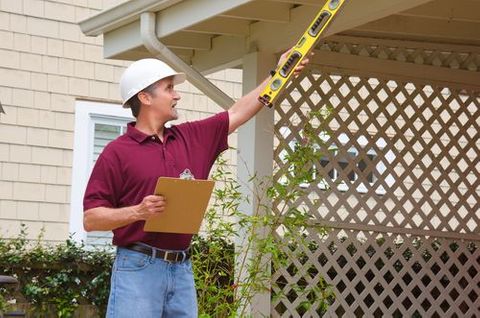Before you list your home for sale, it’s a great idea to research what it takes to sell a home.
Of course, your real estate agent is the professional who will help you through a successful transaction, but, as the seller, will also want to know what’s going on throughout the process.
Keep in mind that in most markets it can take months to sell a home, but some home sales take place within a matter of days of listing the property.
Therefore, you need to be prepared right from the start to go all the way to closing on your home sale.
When it comes to buying or selling a home, there are many things to consider. One item that deserves attention is closing costs. Whether you are buying or selling a home, you will encounter closing costs.
Therefore, it is helpful to know a little about closing costs and what they entail, and who is responsible for what.
If you are thinking about selling your home, you’ll want to understand closing costs.
💰 What Are Closing Costs?
The sale of a home isn’t free. There are fees associated with your home sale that you need to consider. These fees are referred to as closing costs.
Every real estate transaction involves closing costs. Some are paid for by the buyer and some are the responsibility of the seller, and some of the costs can be negotiated between the buyer and the seller. In Collin County, Texas, seller closing costs generally run between 1-2% of the purchase price, exclusive of agent and broker fees.
The net proceeds on the sale of your home are realized once the closing costs have been subtracted from the selling price.
It is good to understand how closing costs are calculated and what is expected of you, as the seller, so there are no surprises when it is time to close the transaction.
If you haven’t researched which closing costs for which you’ll be responsible, it could delay the closing on the sale of your home.
If you’re unable to pay the closing costs, then the transaction could be lost. You will want to avoid this since so much time and effort will go into selling your home.
💲 What Are Closing Costs Based On?
There are several variables that will determine how much your closing costs will be.
One of the biggest expenses for sellers is their mortgage payoff. Closing costs are not set in stone.
You may be able to negotiate some of the costs with the buyer. If you are selling your home, the costs due at closing will primarily depend on the following factors:
- The terms of your loan
- Whether you hire an attorney to handle the closing
- HOA transfer fees
- Real estate commissions
- Prepayment penalty
- Seller concessions
- Lien release
- Home inspection
The amount of closing costs will vary from area to area. For instance, you may be required to pay for a pest inspection if you live in a certain area whereas someone in a different area does not need a pest inspection.
Becoming familiar with typical closing costs for sellers is a great way to learn what you can expect at closing.
If you know exactly how much you’re expected to pay at closing, you can avoid any disappointment when you receive less money on the sale of your home.
Read on to learn which closing costs to expect and an explanation of each.
💵 What Are Typical Closing Costs for Sellers?
In a real estate transaction, typically sellers are responsible for certain closing costs. If you’re selling your home, you can expect to incur the following closing costs at the closing of your real estate transaction:
- Mortgage Payoff – If you owe money on your home, you’ll be required to pay off the balance on the mortgage once the real estate transaction closes. You’ll need to subtract this amount from your net proceeds.
- Prepayment Penalty – You should check with your lender to determine if you will be required to pay a fee for paying your loan off early. Some lenders charge a fee for early payoff.

- HOA Transfer Fees – Home Owner’s Associations’ (HOA) are very popular in Texas. Many if not most neighborhoods are governed by an HOA. As a part of the sale of your home, a homeowner is required to deliver a copy of the HOA’s covenants and rules to the buyer. Often, there are fees associated with the production and delivery of these documents that are typically paid by the seller. Your title company will take care of ordering these documents from the HOA Management Company and delivering them to the buyer.
- Lien Release – If there are any liens associated with your property, these will need to be paid off before the property can be transferred to the buyer. There may be a lien against your property if you owe money to a contractor or have judgments from a court or if you owe property taxes. Check to ensure there are no liens against your property before the scheduled closing so that there will be no surprises when it is time to close.
- Recording Fees – To demonstrate that you have paid any debts associated with the property, you will need to pay recording fees.
- Listing Agent Commission – The real estate agent who listed your home and helped you sell the home will be paid a commission at closing for his or her services. Typically, this fee is six percent of the selling price of the home but can range from five to eight percent. This fee largely will depend on the area in which you live.
- Seller Concessions – A buyer may negotiate with you to help pay their closing costs. For example, a buyer may ask the seller to split the closing costs. The amount that you’re willing to pay for the buyer will be added to the agreed upon the selling price of the home and you will give that amount back to the buyer at closing.
- Home Repairs – Initially, the buyer will do a walk-through. During this visit, they will be looking for any repairs, big and small, that they feel need to be made before closing can occur. Therefore, it is always a good idea to make any small repairs as you’re getting ready to sell your home. If the home inspection uncovers any issues, you may be required to fix such issues before the sale of your home can take place.

- Notary Fees – Documents that you are required to sign for the sale of your home often need to be notarized. The notary may charge a fee to verify your identity and to ensure the documents are signed properly.
- Escrow Fees – An escrow agent works with the buyer and seller to ensure the money is handled properly. They receive money from the lender and pay off your mortgage and closing costs. They also collect down payments and give the proceeds to the lender. You can often negotiate with the buyer to split the escrow fee.
- Title Search Fees – You will pay a fee to a title insurance company to search public records to provide you with a title insurance commitment. The title insurance commitment says you have the legal right to sell your home and will also list in detail other factors affecting the title to your home, including:
- Mortgages
- Liens
- Easements
- Restrictions
- Home Owner Association Declarations
- Home Warranty – You may want to offer to the buyer a home warranty that provides a protection plan for the first year that they own the home.
- Termite Inspection – Some areas require you to provide a termite letter saying the property does not have a termite issue. You’ll need to check with the laws within your jurisdiction to determine if this is needed.
- Attorney Fees – If you choose to work with an attorney on your real estate transaction, they will charge you a fee for their services. You can often negotiate this fee. Some people feel more comfortable when working with an attorney on important transactions such as the sale of real estate. An attorney can ensure the transaction is handled properly and there are no outstanding issues with the transaction.
The aforementioned closing costs are typically what sellers can expect. There may be other costs associated with the sale of your home and will depend on the area in which you live as laws vary in different regions.
💡 In Conclusion
Selling a home is a time-consuming process that you should not take lightly. Knowing what to expect throughout the process is key to ensuring you have a successful transaction.
Understanding closing costs and what is expected of you will help you avoid any unwanted surprises at the scheduled closing.

Keep in mind that some closing costs can be negotiated. For instance, if you hire an attorney to conduct the closing, you may be able to negotiate the price of the attorney’s fees. Also, there are other closing costs that you can negotiate with the buyer.
Keep those costs that can be negotiated in mind. Your goal at the end of all of this is to make as much money as possible from the sale of your home.
Understanding the closing costs and successfully negotiating such costs when possible will ensure the sale of your home goes smoothly.
☎️ Contact The Vaughan Team


